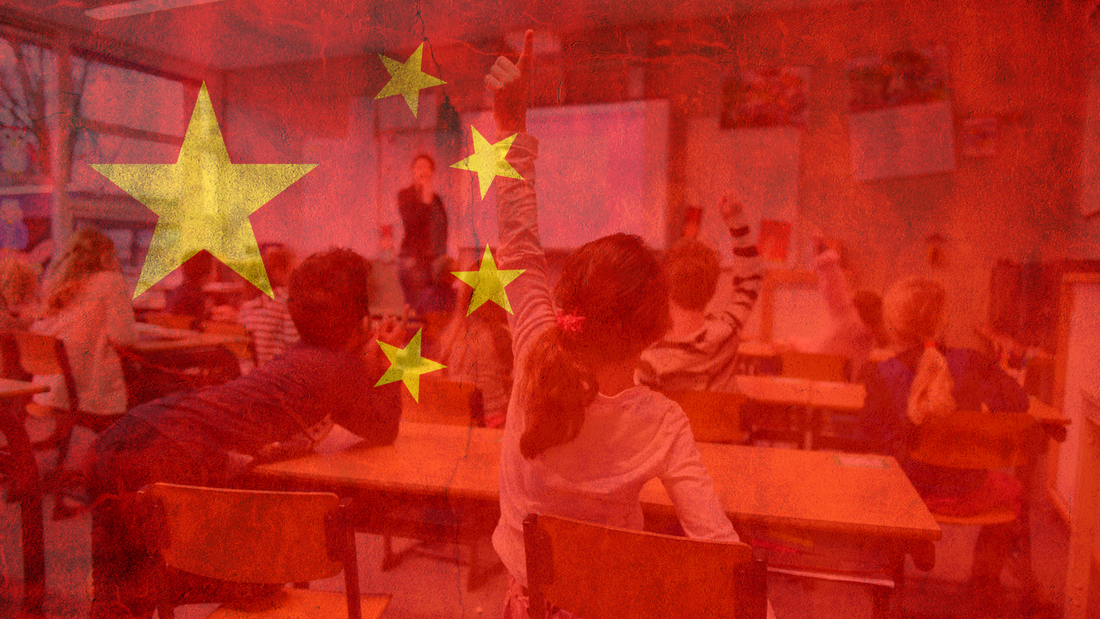|
It may sound like paranoia from the era when conspiracy theorists were worried about fluoride in drinking water and communists under every bed. But it was with good reason that the U.S. House recently voted to establish the Select Committee on the Strategic Competition Between the United States and the Chinese Communist Party, opening a formal process with which to investigate how China is infiltrating our country and, among other things, attempting to stifle public debate about China-related issues. This examination must include K-12 classrooms.
Chinese espionage in the U.S. has grown into a significant problem. The Chinese government directs agents to infiltrate American corporations, pilfer vital research worth billions of dollars, and secret it back to China. Often overlooked, however, is how the PRC maintains a powerful influence network in education, known as Confucius Institutes. According to the National Association of Scholars (NAS), since 2004 the Chinese government has sponsored Confucius Institutes on college and university campuses around the world, providing teachers, textbooks, and operating funds. What could be wrong with that? In 2020, the U.S. State Department designated the U.S. headquarters of these institutes “as a foreign mission of the People’s Republic of China.” The State Department noted that a senior Chinese Communist Party official, Li Changchun, has called these institutes “an important part of China’s overseas propaganda setup.” Other officials have said that the design of Confucius Institutes is to counter concerns about China’s threats to Taiwan and activities in Tibet and Xinjiang, the latter the home of the persecuted Uighurs. The NAS reports that contracts between Confucius Institutes and scholars are often secret, and that universities are presented with financial incentives to toe the party line and avoid sensitive topics such as human rights abuses. These institutes not only use their soft power to undermine academic integrity, they also import censorship and intimidate dissidents, including such incidents as the vandalization of posters and physical intimidation of a Cornell University student protesting China’s treatment of Uighurs. The response to the one-sided approach of Confucius Institutes is well underway in higher education. State and federal policies targeted at Confucius Institutes have caused 106 centers across the country to shutter their doors. Only about 15 remain, and some of those are slated for closure. Few are aware, however, that Confucius Institutes also have an impact on American K-12 schools. The NAS claims that around 500 American K-12 schools have hosted the affiliated Confucius Classrooms. Confucius Classroom teachers are assigned to teach in language immersion programs, where they teach not only language, but also primary subjects of interest to China, including what the State Department calls a “skewed” take on issues. These Confucius Classrooms continue to operate around the country even while Confucius Institutes close. For that reason, the Departments of Education and State have issued warning notices to school districts with Confucius Classrooms. The NAS has urged the federal government to commission a study on the full extent of Confucius Classrooms around the United States. Protection of speech requires protection against government-funded institutions that would themselves try to stifle free speech on issues of public interest and replace it with one-sided presentation of official propaganda. Confucius Institutes have already proven to be a challenge to academic freedom and speech on campus. It is important that the American public receives the full picture of the extent to which the PRC is influencing our educational system, and our democracy. Comments are closed.
|
Archives
June 2024
Categories
All
|
ABOUT |
ISSUES |
TAKE ACTION |



 RSS Feed
RSS Feed